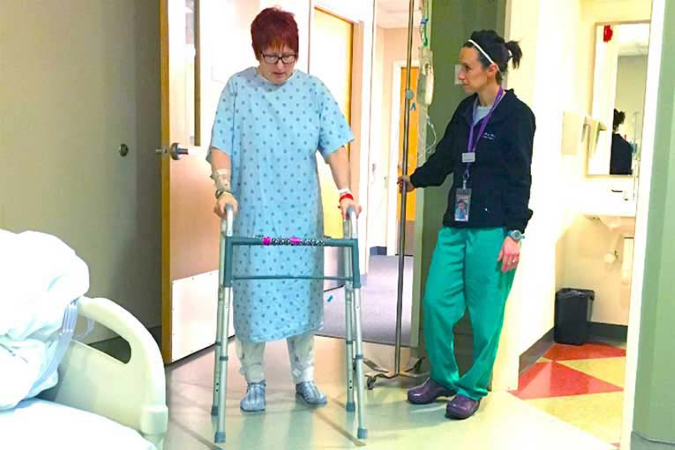14
Jan 2020
Getting Back into Action After an Operation
Published in General on January 14, 2020

Post-operative recovery varies from person to person. A few lucky ones can get right back into their normal routines, others, unfortunately, may take more time before they can do such. A person’s mental state, lifestyle, general health before the operation, and post-operative care are some of the factors which can directly affect how fast he/she can fully recover from the surgery.
Don’t Rush
Don’t pressure yourself too much with going back to your job or doing your chores at home. Embrace the situation and let your body heal. Take this opportunity to destress and focus on yourself. Ask assistance from friends and family who’d love to help you out. Going slow and steady is ten times better than risking any type of health complications that can worsen your condition.
Speak to Your Employer
It’s crucial that you listen to your body. If you feel like you’re still not ready to bounce back into your normal tasks, then be sure to update your employer about how your recovery is going and request for a possible extension of your leave or less workload.
Appreciate Help from Family and Friends
Some people refuse assistance from others due to either guilt or pride. This type of mindset can only make your life much harder, especially after having an operation. Therefore, when others offer to do some of your errands, babysit your kids, and whatnot, might as well accept it and be grateful for it. Ideally, offer help to them in the future as a way of saying thanks.
Get Moving
Following your doctor’s orders are necessary to aid your complete recovery. Doing light activities and exercises, as recommended by your physician, can help your organs function normally. A good example is those who had undergone a c-section. These women are typically advised to do a bit of walking around their hospital room 24 hours after the operation to help their digestive and urinary system function again. If your exercises are too overwhelming or too boring for you, feel free to consult your doctor for alternative activities. Create goals for yourself as well to track your accomplishments.
Always Seek Your Physician’s Advice
Being too complacent can lead to dangerous consequences. Sometimes, patients become overconfident with their bodies that they recklessly perform tasks that may seem safe but can cause them to step backward in their recovery. Thus, consulting your doctor before jumping to conclusions about what you should and shouldn’t do is highly important.
Think Positively
Some patients who are recovering from surgery tend to experience some type of low mood or depression. It has to do with having limited activities that can make you think less about your physical pain. This is why it’s important to think happy thoughts and avoid stressing about things that you can’t control. Read interesting books, watch your favorite movies and shows, and call your friends and loved-ones to lift your mood. Relax and meditate if you can. Doing these can help your body and mind recover faster.
Get Insured
HIF offers five levels of hospital cover for individuals to choose from. Make an inquiry to compare each level from one another and learn more about which best suits your needs.
For more advice contact the Alfred Hospital.









